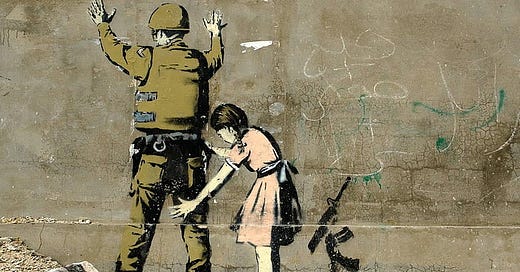Hello and Salaam, my friends.
Deep breath… When I started writing unfinished letters, it was with the intention to explore the unvarnished parts of myself. The parts the aren’t quite so polished and sanded down. And to do it behind the safety of a smaller space here in this little corner of the internet. Writing today’s post felt like an exorcism, the release of words I haven’t trusted myself to explore publicly before. And sharing it? Hitting that publish button? That is terrifying. Which is why I know I have to do it.
Thank you to my friend for being my test reader, and for walking me back from the “I can’t publish this everyone will hate me” ledge. We should all be so lucky to have a sounding board like you.
Thank you also to poet , whose work inspired this post…
A gentle note that there is a paywall in this post. If you’d like access to the whole post, consider upgrading your subscription.
Ok, I can’t think of anything else to put off sharing this. Deep breath… exhale… here goes!
When they go low, we go high.
I’m not entirely sure where I first heard that, but a few years ago, it suddenly felt like that phrase was everywhere.
Taking the high road is not a new concept. It’s been seen as a sign of character for as long as humans have written their history. It has religious implications too. Jesus is famously known for eschewing, “turning the other cheek”. The Quran, Islam’s holy book, tells adherents to “respond with what is better”1.
I’m a follower of both Prophet Muhammad and Prophet Jesus, may God’s peace and blessings be upon them both2. So why do I find myself struggling with taking the high road?
A few weeks ago, I read an incredible essay, here on Substack, by a writer I admire greatly. The essay was about the racist responses to a poem she had shared on social media, that asks people to consider PTSD for war survivors.
It was beautiful, thoughtful, and internally focused. It rightly pointed out the fact that much of this racist abuse and rhetoric was a symptom of internal anger, of what she called a ‘virtual wound’. It asked us to consider how much we look down on those with this virtual wound, rather than looking inward at our own wounds, and being grateful that we haven’t been afflicted with this particular one.




